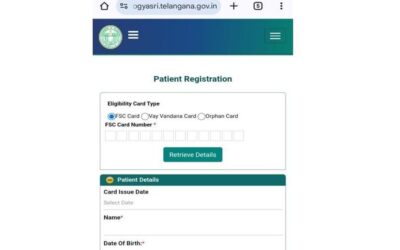Almost a quarter of people in the United Kingdom now have tattoos, and the trend has become so popular that you can even make a tattoo on a cruise holiday. Temporary tattoos, such as Henna designs, have also increased in popularity, particularly among travelers looking for a memory without life commitment.
The traditional art of Henna, practiced throughout southern Asia, the Middle East and North Africa, uses natural dye to create intricate patterns that vanished over time.
But the GP, Dr. Asimah Hanif, who works with the medical travel insurance supplier, warns tourists of a thing that must take into account when making a tattoo abroad. Dr. Asimah said: “A tattoo can be a great memory of a trip, but it is important that the British be aware that any health complication, such as a bacterial infection, will probably not be covered by its travel insurance if it is caused by becoming a tattoo.”
Part of the reason why tattoos can cause complications while traveling is the tension they place in the body. “Getting a tattoo weakens the immune system,” said Dr. Asimah. “The immune system is activated to try to fight what it perceives as a foreign invader: tattoo ink.”
Dr. Asimah adds that a vacation environment also puts it at a greater risk of an infection. “A tattoo is essentially an open wound, while it is healing, and a foreign holiday offers many opportunities for infection.
“From a fall in a chlorinated pool to the application of sunscreen, these factors increase the possibilities of bacteria entering the wound and developing a bacterial infection. In some cases, there is also the possibility of eating less nutritious food than usual, which can again put the body with greater risk of an infection.
“It is also worth noting that, although natural henna is generally considered safe, the so-called ‘Black Henna’, often used in tourist markets, can sometimes contain harmful additives such as para-phenylendiamine (PPD), which can cause serious skin reactions and allergic responses,” said Dr. Asimah: “Verify the ingredients that are used if you are used if you are used if you are used if you are used if you are used if A Henna while abroad.
“A bacterial infection is never good news, and can vary from a mild disease to something as dangerous as sepsis, which can make the vital organs of the body close.
“The majority of standard medical travel insurance packages will not cover a problem caused by a tattoo, and the same goes for piercings,” added Dr. Asimah: “Then, it may be wiser to wait until he is at home to enter, where he can visit a trusted tattoos room and have access to medical care in the United Kingdom if an infection occurs.”
“Having a tattoo should not be taken lightly, so it is better not to hurry. Subsequent care routine is key to helping him heal properly, which takes time.”
Five tips that will help protect a tattoo from infection:
- Always choose an artist of licensed tattoos with good hygiene and safety standards
- Gently wash the tattoo with soft soap without perfume once or twice a day and keep it covered.
- Keep the tattoo away from the pools and the sea, and dry with a clean towel or let it dry in the air after a shower.
- Keep your tattoo out of the sun for at least two weeks, or until it heals. If you are in the sun, do not apply sunscreen directly to the tattoo: cover it slightly with a clean bandage.
- Wear loose and breathable clothes to avoid irritation and refrain from an strenuous activity that can cause excessive sweating.
(Tagstotranslate) trip









